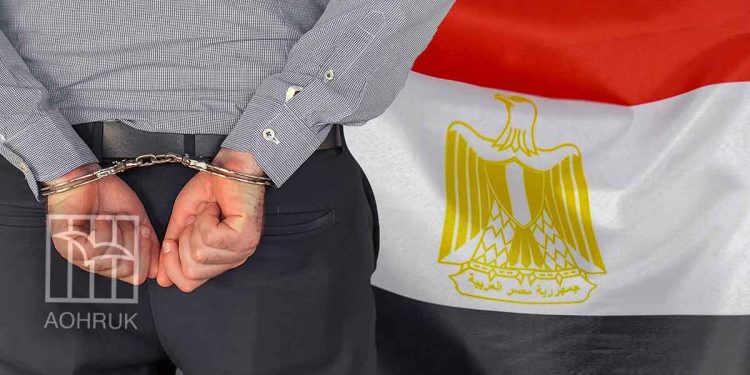Egypt’s Supreme State Security Prosecution has ordered the detention of 60 citizens—including one young woman—for 15 days pending investigation, following their first appearance after periods of enforced disappearance lasting from weeks to several months. During their disappearance, they were denied access to their families or legal representation, and their places of detention remained unknown.
This move reflects the Egyptian authorities’ continued reliance on expansive security policies that undermine the most basic guarantees of criminal justice. Enforced disappearance is being systematically used as a silent tool of political repression, followed by formal charges with generic, unsubstantiated accusations—without fair judicial processes.
The detainees now face a series of broad, repetitive charges commonly used in cases related to opinion and expression, including: “joining a terrorist organisation,” “spreading false news,” “misuse of social media,” “promoting ideas that incite violence,” and “funding.” These charges are often applied collectively, without individual assessment, allowing the authorities to indefinitely extend pretrial detention and turn it into a de facto punishment without legal basis.
Enforced disappearance—despite being a clear violation of Article 54 of the Egyptian Constitution—remains widespread. The article guarantees that detainees must be informed of the reason for their arrest, allowed to contact a lawyer, and have their families notified of their location within 24 hours. None of these rights were observed in the 60 cases referenced in this prosecution decision.
Among those detained is a young woman, Mona Mohamed Nazim, underscoring the increasing targeting of women in politically motivated cases and the systemic abuse they face in detention facilities, where credible reports have documented ill-treatment and torture.
The list of names includes Mona Mohamed Nazim, Ahmed El-Bayoumi El-Sayed, Ahmed Thabet Hussein, Ahmed Mohamed Saeed, Ahmed Mohamed Ammar, Ahmed Hesham Saad, Ahmed Yehia Mehran, Ashraf Abdeen El-Sharoud, Ayman Abdelrahman Abdel-Tawab, Hassan Ashraf Farouk, Souqi Ali Farag, Diab Hamada Shabib, El-Sayed Ahmed Gad, Tarek Saeed Morsi, Atef Mohamed Desouky, and many others.
This development raises serious concerns about the future of fundamental freedoms in Egypt—particularly the rights to free expression and association—as security services continue to dominate the judicial process, employing superficial legal procedures to enforce a regime of systemic repression.
The expanding use of pretrial detention, coupled with its accompanying abuses, underscores the urgent need for real accountability, the restoration of constitutional protections for citizens, and a recommitment to the rule of law—free from exceptional measures that convert the state into a closed space for dissent.


























